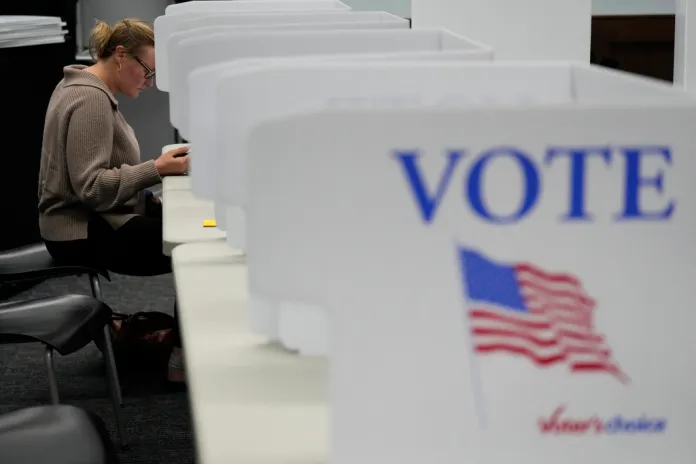
The data is required by the Help America Vote Act, but the Wisconsin Institute for Law & Liberty (WILL) was denied further access to the databases to verify the specific discrepancies involved. These discrepancies include 11,174 registrations without a driver’s license number, up from 4,885 in 2020, and 24,733 cases where a name does not fully match WisDOT (Wisconsin Department of Transportation) information, up from 15,260 in 2020.
“We’re not in any way saying that these 40,000 votes were fraudulent votes,” Lucas Vebber, deputy counsel for WILL, told The Center Square. “We don’t know that. We don’t even know if these 40,000 names were even voters in the election. We know that they’re on the voter registration list, and it’s certainly likely, of course, that some of them voted.
“But we don’t know because we don’t know who voted, and we don’t know what all the discrepancies are. It could be something innocuous; it could be something more serious. But our point in the letter is just saying this is serious enough that questions need to be answered, and we need a little more transparency here from the government.”
WILL sent a follow-up letter to the U.S. Department of Justice on the issue after urging the department earlier this fall to take a deeper look.
A Waukesha County judge ruled in an unrelated case earlier this month that the Wisconsin Elections Commission (WEC) must check voter registration information against state identification information to ensure the voter rolls are accurate. However, a stay was placed on that ruling until the results of a hearing scheduled for 10:30 a.m. on Friday.
According to WEC data, the name and date of birth don’t match on 680 registrations, just the date of birth doesn’t match on 3,110 registrations, and no WisDOT matches were found for 2,069 registrations.
WILL has urged the WEC to explain why it uses different processes to vet online voter registration information compared to hand-written forms.
“What are they doing to ensure the integrity of our voter registration list?” Vebber asked. “That’s a really good question for WEC. If they have this information, then they are aware of this discrepancy. What are they doing with it? We’d like to know.”
The WEC has stated that online registrations are blocked if information does not match, such as a voter’s name, date of birth, license number, or residency. However, they explained that a separate process is used for paper registrations.
https://www.washingtonexaminer.com/news/investigations/3867194/41k-wisconsin-voter-registration-dont-match-driver-id/





